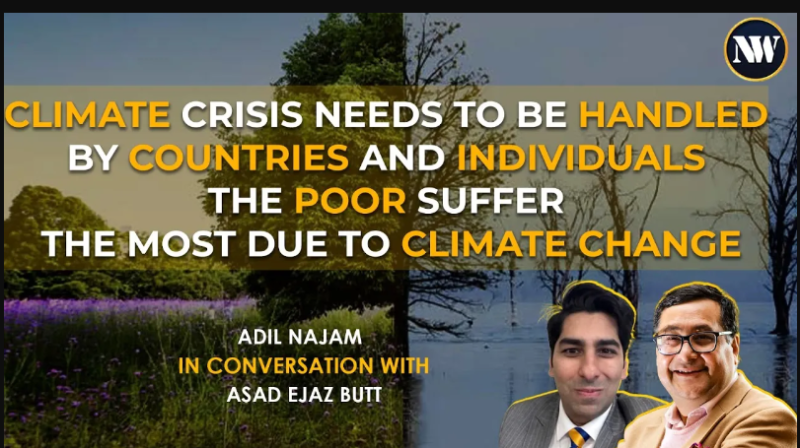In the ever-evolving discourse surrounding climate change, there is an emerging call to shift the conversation from abstract global dynamics to a more localized and grounded perspective. While international agreements and policy negotiations are undeniably important, focusing solely on these aspects can sometimes overshadow the pressing need to address the immediate challenges faced by communities across the world. This article delves into a thought-provoking interview with Mr. Adil Najam, Dean Emeritus at Boston University, where he highlights the significance of a Desi (local) perspective on climate change, emphasizing the need for adaptation, justice, and holistic well-being.
At the heart of the interview lies a critique of the prevailing notion of growth as the ultimate measure of development. Mr. Najam argues that the incessant pursuit of economic growth, often epitomized by rising GDP figures, can lead to misguided priorities that neglect the well-being of individuals and communities. He calls for a shift towards focusing on human well-being, quality of life, and prosperity as the true markers of development. This is particularly relevant in the context of climate change, as the effects of unchecked growth can exacerbate environmental degradation and further marginalize vulnerable populations.
The concept of climate justice emerges as a central theme in the discussion. Mr. Najam emphasizes the moral imperative of ensuring that the countries and individuals primarily responsible for causing climate change bear the burden of its consequences. He aptly describes climate justice as a call for equitable and fair distribution of the impacts and costs of climate change. While the interview acknowledges that the disparity between post-industrialized nations and developing countries exists, it also underscores the need to address climate justice at all levels, including within nations and communities.
The interview challenges the notion that climate justice is merely about limiting the extent to which countries can harm the environment. Rather, it advocates for a more profound understanding—one that centers on the equitable distribution of opportunities, resources, and resilience-building measures. The focus is on empowering vulnerable communities to cope with the impacts of climate change and fostering a sense of collective responsibility.
While advocating for a Desi perspective, Mr. Najam does not dismiss the role of countries and international institutions in addressing climate change. He highlights the need for policy frameworks, agreements, and negotiations to collectively address global challenges. However, he underscores the limitations of international cooperation, citing the failures of multilateral agreements such as the Conference of the Parties (COP) climate conferences. The interview encourages a shift in mindset—from relying solely on international agreements to fostering local initiatives and resilience.
Adaptation emerges as a key strategy in the pursuit of climate resilience. Mr. Najam's emphasis on adaptation echoes the sentiment that while mitigation efforts are critical, societies must also prepare to confront the realities of a changing climate. Adaptation requires a nuanced understanding of local contexts, vulnerabilities, and opportunities. This approach resonates with the Desi perspective, as it encourages communities to take ownership of their response to climate challenges and tailor solutions to their unique needs.
A standout highlight of the interview is Mr. Najam's reference to the Living Indus Project - a comprehensive framework that advocates for a Desi approach to climate change adaptation. This project, designed in collaboration with the United Nations and the Government of Pakistan, focuses on the Indus River and its ecosystem. It calls for a holistic approach that integrates ecological sustainability, community engagement, and policy innovation. The Living Indus Project reiterates the importance of recognizing the interconnectedness of nature, culture, and well-being.
As we navigate the complexities of a changing climate, the insights from this interview serve as a rallying cry to shift our focus from external forces to local agencies. By fostering a Desi perspective on climate change, we can create a more inclusive and effective approach to sustainability - one that acknowledges the interconnectedness of ecosystems, cultures, and communities.

